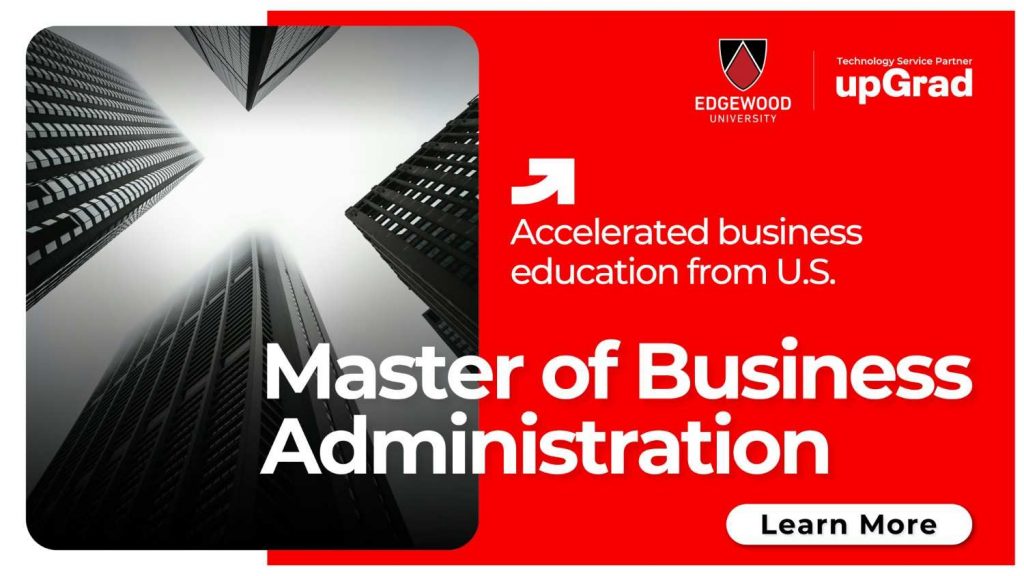Earning an MBA can significantly expand career opportunities, especially in a market like Canada, where demand for MBA professionals remains strong across various sectors in 2026. Industries such as finance, technology, consulting, and healthcare are offering competitive salaries, with MBA graduates earning between CAD 96,154 and CAD 109,885 annually. Additionally, pursuing specialized MBA tracks can lead to even higher earning potential, making these roles particularly appealing in the Canadian job market.
However, candidates must plan proactively to secure these opportunities. This is where career planning becomes a crucial part of the MBA career journey. This blog will explore exactly that: how to plan what to do after MBA strategically, both during and after the course. It will also offer insights on how to choose your first job wisely after earning your MBA.
Sources: Talent.com
Practical Strategies to Plan Your MBA Career During and After Graduation
Today’s competitive job market has transformed MBA programs into more than just academic credentials; they’re game-changers. From early-career professionals to those seeking a career shift, these programs provide a strategic edge. To make the most of this opportunity, proactive planning and thoughtful career strategies are essential.
| Suggestion | Best Ways to Execute the Suggestion |
| Improving Personal Branding and Networking Techniques |
|
| Investing in Continued Professional Development |
|
| Leveraging Professional Advisors and Mentors |
|
| Utilizing One’s MBA Credentials in the Job Market |
|
| Adapting Strategies and Meeting Evolving Market Demands |
|

Improving Personal Branding and Networking Techniques
For candidates wondering what to do after MBA, this is the first step they should take. Having a strong MBA network can help candidates speed up the process of advancing their careers. Candidates can enhance their personal brand by taking part in industry events and joining professional associations. They should also engage more on platforms such as LinkedIn.
Investing in Continued Professional Development
Earning an MBA can lay a strong foundation, but building a successful career is an ongoing journey. To remain relevant and competitive, professionals must commit to ongoing learning throughout their careers. This ongoing investment in professional development helps ensure adaptability and agility in today’s rapidly changing business landscape.
Also Read: The Importance of Work Experience for Online MBA Admissions in Canada
Leveraging Professional Advisors and Mentors
The right kind of mentorship can accelerate one’s MBA career growth by providing candidates with critical insights and objective advice. Mentors can provide valuable advice that helps candidates identify and seize potential opportunities early, as well as avoid potential pitfalls. Forbes has repeatedly shown through research that mentorship has a positive correlation with career success.
Utilizing one’s MBA Credentials in the Job Market
An MBA degree is a cherished asset, and candidates can leverage it in many ways. They can highlight their achievements, tailor their job applications, and engage with recruiters. Showcasing industry-specific projects or internships completed during the MBA can also significantly boost a candidate’s appeal to potential employers.
Also Read: Canada Job Market Trends: Why an MBA is a Smart Investment Today
Adapting Strategies and Meeting Evolving Market Demands
The key to navigating the trials and tribulations of a challenging and dynamic job market is to be flexible. A candidate’s career plans must evolve in line with the industry’s changing demands; they must be agile. The ability to pivot and adapt is one of the most crucial traits in today’s business environment. Candidates need to be able to embrace change as a constant and continually innovate as part of their career strategy.
Also Read: What Are the Job Prospects After an MBA in Canada?
Getting Started with Your MBA Career – Choosing the First Job Wisely
After graduation, students will have a wide range of MBA career options, but choosing the right path requires a strategic approach. The first role may not be their dream job, but it should serve as a meaningful step toward that goal. To make an informed choice, candidates should focus on:
- Skill development opportunities.
- Exposure to decision-makers.
- Alignment with long-term goals.
- Being prepared to pivot, but always with intention.
Also Read: Understanding The Scope of an MBA: Key Opportunities & Trends
How upGrad’s Online MBA Programs Propel You Towards High-Growth Careers
The online MBA programs offered by upGrad are the best options for students seeking to establish a strong foothold in Canada as MBA professionals, as they are all affiliated with prestigious global institutions. These programs can help them attain the peak of business learning and accelerate their MBA success.
- Master of Business Administration (MBA), O.P. Jindal University
- Master of Business Administration, Golden Gate University
- Master of Business Administration, Edgewood University
- Master of Business Administration (MBA), Liverpool Business School
- Dual Degree MBA and DBA, Edgewood University
🎓 Explore Our Top-Rated Courses in Canada
Take the next step in your career with industry-relevant online courses designed for working professionals in Canada.
FAQs On MBA Career Planning
Q: When should I start planning my MBA career path?
Ans: Candidates should begin planning their MBA career path before the program starts. At the very least, they should do it during the first semester itself.
Q: How do I choose the right MBA specialization or concentration for my career goals?
Ans: Candidates must review the syllabus of each specialization and the opportunities it provides to determine whether they align with their interests.
Q: What career support services do most MBA programs offer?
Ans: The most prominent career support services that MBA programs offer are:
- Career Coaching
- Resume and Cover Letter Reviews
- Interview Preparation
- Networking Opportunities
- Placement Services
Q: How important are internships during an MBA?
Ans: Internships are crucial for MBA students, as they bridge the gap between theory and practice. They allow students to apply their classroom knowledge to real-world settings and gain valuable practical experience.
Q: How do I make the most of networking opportunities while in an MBA program?
Ans: Candidates seeking to maximize networking opportunities in an MBA program should focus on establishing strong connections, utilizing available resources such as career services and the alumni network, and participating in relevant activities.








